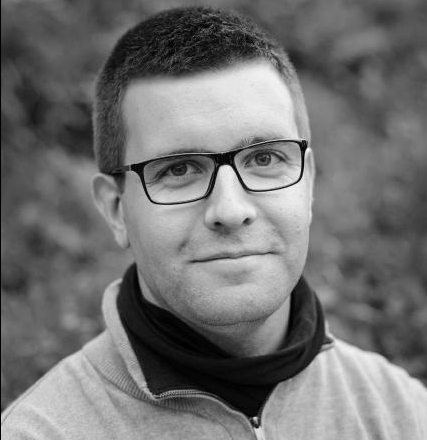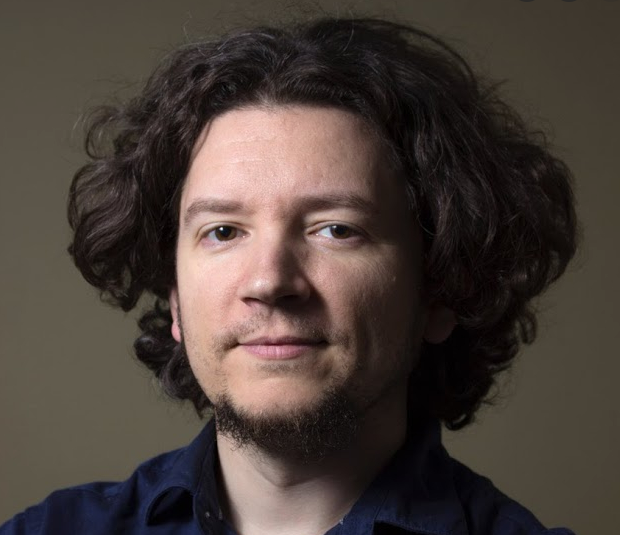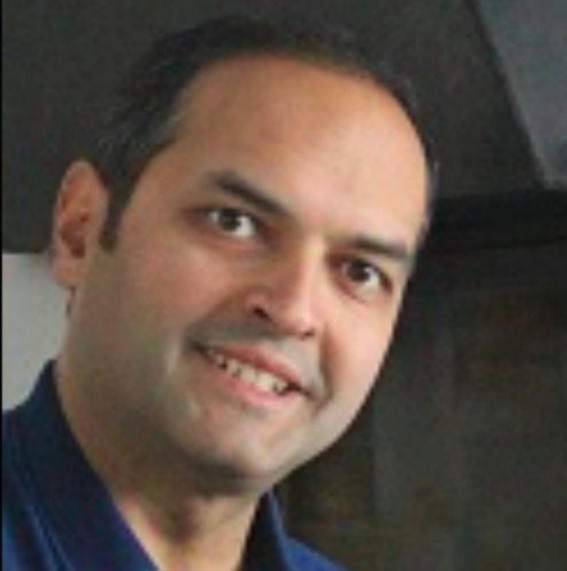Tutorials
Improve the benefits of coming to the conference further by attending our tutorials, all given by well-known experts.
| Morning | Before Lunch | After Lunch | Afternoon | |
|---|---|---|---|---|
| Tuesday, 14th June |
Tutorial 1: Moving up to Ada 2022 (S. Tucker Taft) |
Tutorial 3: The ALiRe Package Manager (Fabien Chouteau and Alejandro R. Mosteo) |
||
| Tutorial 2: Numerics for the Non-numerical Analyst (Jean-Pierre Rosen) |
Tutorial 4: The HAC Compiler (Gautier de Montmollin) |
|||
T1 - Moving up to Ada 2022
S. Tucker Taft, AdaCore, USA
Location: Priorzaal
Ada 2022 has been approved by ISO WG9, and hopefully by the time of the tutorial, ISO SC22 and perhaps ISO/JTC1, making it the new standard for Ada. It is time to learn what Ada 2022 can offer to you as an Ada programmer, manager of an Ada team, or someone evaluating whether Ada itself might be something worth trying. This tutorial will introduce the key features of Ada 2022, and show how they can be used to make programming both safer and more productive, by s howing how past approaches to solving certain kinds of complex problems can be simplified and made more robust by transitioning to the use of enhanced Ada 2022 language constructs and libraries.
Level: Intermediate to advanced.
Programmers who have used some version of Ada in the past to solve challenging problems
Reason for attending
This tutorial should help you see, through a series of example problems similar to those you might have solved in the past, how you could use Ada 2022 features to produce a safer, more elegant, and more maintainable solution.
Presenter
 S. Tucker Taft is VP and Director of Language Research at AdaCore. His specialties include
programming language design, advanced static analysis tools, formal methods,
real-time systems, parallel programming, and model-based development. Tucker was lead designer
of the Ada 95 programming language, and is a member of the ISO Rapporteur Group that
developed Ada 2005, Ada 2012, and Ada 2022. Tucker has also been designing
and implementing a parallel programming language called "ParaSail," and defining parallel
programming extensions for Ada as part of the new Ada 2022 standard. He is currently
developing an extension of ParaSail into the distributed computing domain, with
the new language dubbed “ParaDISO” for Parallel, Distributed, Incremental, and Streamable Objects.
S. Tucker Taft is VP and Director of Language Research at AdaCore. His specialties include
programming language design, advanced static analysis tools, formal methods,
real-time systems, parallel programming, and model-based development. Tucker was lead designer
of the Ada 95 programming language, and is a member of the ISO Rapporteur Group that
developed Ada 2005, Ada 2012, and Ada 2022. Tucker has also been designing
and implementing a parallel programming language called "ParaSail," and defining parallel
programming extensions for Ada as part of the new Ada 2022 standard. He is currently
developing an extension of ParaSail into the distributed computing domain, with
the new language dubbed “ParaDISO” for Parallel, Distributed, Incremental, and Streamable Objects.
Prior to joining AdaCore, Tucker was Founder and CTO of SofCheck, Inc., providing tools and technology to enhance software development quality and productivi ty. Prior to that Mr. Taft was a Chief Scientist at Intermetrics, Inc. and its follow-ons for 22 years. Tucker received an A.B. Summa Cum Laude degree from Harvard University, where he has more recently taught compiler construction.
T2 - Numerics for the Non-Numerical Analyst
Jean-Pierre Rosen, Adalog, France
Location: Oude Infirmerie
Numerics are a special area of software development, and numerically intensive programs are best developed by specialists of the domain. On the other hand, many programs have to deal with mathematical computations, without being really numerically intensive. This tutorial addresses the techniques (and pitfalls) that every application developer needs to know as soon as there are some computations that go beyond simple integer arithmetic, without requiring them to be advanced numerical analysts. The tutorial also addresses the various tools offered by Ada, from numeric types to libraries.
Level: Intermediate
Expected audience experience: Casual knowledge of Ada.
Reason for attending
- Learn how to select the most appropriate numeric type for your applications
- Avoid pitfalls and increase the accuracy and portability of numeric computations
- Discover the standard libraries provided by Ada
Presenter
 JP Rosen is a professional teacher, teaching Ada (since 1979, it was preliminary Ada!), methods, and software engineering.
He runs Adalog, a company specialized in providing training, consultancy, and services in all areas connected
to the Ada language and software engineering. He is chairman of Ada-France.
While on a sabbatical at New-York University, he implemented fixed-point arithmetic for the Ada/ED compiler.
Adalog offers regularly on-site and off-site training sessions in Ada.
JP Rosen is a professional teacher, teaching Ada (since 1979, it was preliminary Ada!), methods, and software engineering.
He runs Adalog, a company specialized in providing training, consultancy, and services in all areas connected
to the Ada language and software engineering. He is chairman of Ada-France.
While on a sabbatical at New-York University, he implemented fixed-point arithmetic for the Ada/ED compiler.
Adalog offers regularly on-site and off-site training sessions in Ada.
T3 - The ALiRe Package Manager
Fabien Chouteau, AdaCore, France
Alejandro R. Mosteo, Centro Universitario de la Defensa, Zaragoza, Spain
Location: Priorzzal
The Alire project (Ada Library Repository) is a community-oriented package manager for the Ada and SPARK open source ecosystem. Package managers simplify the dissemination and reuse of libraries, easing the development of new projects and fostering cooperation. They also allow simple upgrades of dependencies, which helps in bug fixing and vulnerability patching. Final applications can also be packaged for greater outreach. In this tutorial, participants will get to learn the basics of the Alire project, from design foundations to practical use. General concepts about dependency management will be presented intermixed with guided practicals that will allow participants learning how to use available libraries in their own projects, as well as the workflow to publish a library in Alire. As a real use case, the tutorial will tackle the use of Alire to bootstrap an embedded project with the support of libraries already available in the community index. This example embedded project will be tested either on simulation or on real boards, if possible.
Level: Introductory to Intermediate
Basic knowledge of Ada and the GNAT compilation model is recommended but not mandatory.
Reason for attending
Open source developers nowadays are used to leverage language- and platform-specific package managers to quickly and easily bootstrap projects, locate and reuse functionality and popular libraries, and generally ease development. Alire is the Ada-specific tool to know for people involved with or interested in the Ada language or its SPARK subset for formally verified code. It is also a simple and efficient way to start developing embedded projects, not only for Ada developers, but for any person interested in embedded/bare-metal development: Ada has features explicitly tailored for such scenarios and is perfectly suited to interoperate with C thanks to its binding capabilities.
Presenter
 Fabien joined AdaCore in 2010 after his engineering degree at the EPITA (Paris).
He is involved in real-time, embedded and hardware simulation technology.
Resolute Ada/SPARK supporter and lead of the Ada/SPARK advocacy team at AdaCore.
He spent the last seven years spreading awareness about Ada/SPARK though OSS projects,
blog posts, conferences and presentations (FOSDEM, Embedded World, Ada-France Meetup, etc.).
Fabien joined AdaCore in 2010 after his engineering degree at the EPITA (Paris).
He is involved in real-time, embedded and hardware simulation technology.
Resolute Ada/SPARK supporter and lead of the Ada/SPARK advocacy team at AdaCore.
He spent the last seven years spreading awareness about Ada/SPARK though OSS projects,
blog posts, conferences and presentations (FOSDEM, Embedded World, Ada-France Meetup, etc.).
 Alejandro R. Mosteo is a professor at Centro Universitario de la Defensa, Zaragoza, Spain, since 2011.
He received the Ph.D. in 2010 from the Universidad de Zaragoza, Spain, for his research on teams
of cooperative mobile robots. He is a long-time user of Ada in both academic and hobby contexts,
and has authored several open source libraries for popular robotic frameworks such as Player/Stage and ROS.
For the latter, he presented a tutorial, now available online, on programming mobile robots with Ada
in the Ada-Europe 2021 conference. His research pursuits include multi-robot cooperation, decentralized
algorithms, and autonomous air vehicles.
Alejandro R. Mosteo is a professor at Centro Universitario de la Defensa, Zaragoza, Spain, since 2011.
He received the Ph.D. in 2010 from the Universidad de Zaragoza, Spain, for his research on teams
of cooperative mobile robots. He is a long-time user of Ada in both academic and hobby contexts,
and has authored several open source libraries for popular robotic frameworks such as Player/Stage and ROS.
For the latter, he presented a tutorial, now available online, on programming mobile robots with Ada
in the Ada-Europe 2021 conference. His research pursuits include multi-robot cooperation, decentralized
algorithms, and autonomous air vehicles.
T4 - The HAC Compiler
Gautier de Montmollin, Ada Switzerland
Location: Oude Infirmerie
Sometimes, you would like to write a small program – typically, a text parser, a file converter, a shell script launching various applications, a small computation, etc. You would like to use your preferred "full Ada" compiler in order apply the same know-how as for large-scale development and to keep doors open in case the small program develops into a large, resource- and performance- intensive application. But: for a starter, you feel that your "full Ada" system is too heavy for the job. Perhaps it's because the compiler produces more intermediate files than your program itself would. Or, the build time is a bit too long for experimenting. So, you actually miss an adequate tool. The goal of the HAC Ada Compiler project is to fill that gap. In the tutorial, we explore first the present possibilities offered by HAC. But the main part is allocated to brainstorming, trying small programs, discussing potential developments, say what you like, don't like or would like with HAC.
Level: Basic knowledge of Ada
Reason for attending
- Discover a different way of programming Ada, for different purposes
- Seize the opportunity to influence the future development of HAC: bring your ideas, use-cases, examples, wishes…
- Fun!
Presenter
 Gautier de Montmollin is a software developer.
He holds a PhD in mathematics from the University of Neuchâtel, Switzerland.
His quest for both run time and development time efficiency has trapped him with the Ada
language which he has the chance to use professionally (formerly in finance, now in robotics) and for private projects.
He has presented professional and private projects at various Ada-Europe and FOSDEM conferences.
Gautier de Montmollin is a software developer.
He holds a PhD in mathematics from the University of Neuchâtel, Switzerland.
His quest for both run time and development time efficiency has trapped him with the Ada
language which he has the chance to use professionally (formerly in finance, now in robotics) and for private projects.
He has presented professional and private projects at various Ada-Europe and FOSDEM conferences.